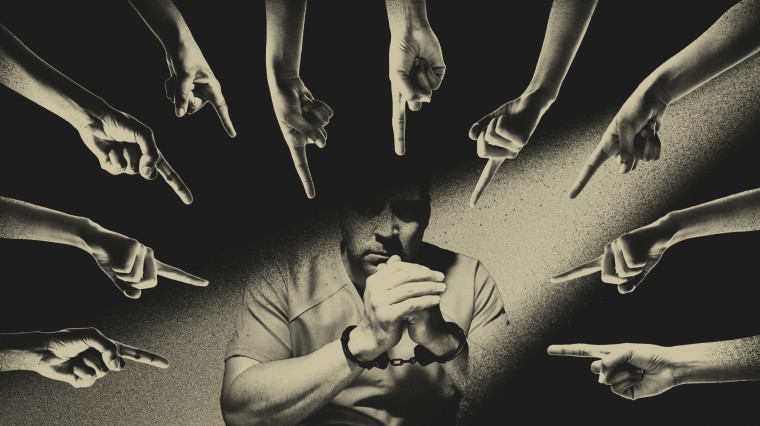America is the most prosperous country in the history of the world. We excel at innovation and mass production — and nowhere is that more true today than our criminal justice system, which features a streamlined process for transforming millions of suspects into convicted criminals quickly, efficiently and without the hassle of a constitutionally prescribed jury trial.
It’s called coercive plea bargaining, and it’s the secret sauce that helps us maintain the world’s highest incarceration rate.
According to a recent study from the Pew Research Center, of the roughly 80,000 federal prosecutions initiated in 2018, just two percent went to trial. More than 97 percent of federal criminal convictions are obtained through plea bargains, and the states are not far behind at 94 percent. Why are people so eager to confess their guilt instead of challenging the government to prove their guilt beyond a reasonable doubt to the satisfaction of a unanimous jury?
The answer is simple and stark: They’re being coerced.
Though physical torture remains off limits, American prosecutors are equipped with a fearsome array of tools they can use to extract confessions and discourage people from exercising their right to a jury trial. These tools include charge-stacking (charging more or more serious crimes than the conduct really merits), legislatively-ordered mandatory-minimum sentences, pretrial detention with unaffordable bail, threats to investigate and indict friends or family members, and the so-called trial penalty — what the National Association of Criminal Defense Lawyers calls the “substantial difference between the sentence offered prior to trial versus the sentence a defendant receives after a trial.”
Of coercive plea bargaining’s many problems, two are particularly concerning.
The first is false convictions. Though it was once believed that a confession in open court — a guilty plea — was proof-positive of a person’s guilt, we now know that simply isn’t true. Indeed, of the more than 300 people definitively exonerated by the Innocence Project using DNA evidence, some 11 percent pleaded guilty to crimes they did not commit since 1989. The National Registry of Exonerations puts the total number at 20 percent since 1989. But whatever the precise figure, it is clear that innocent people are routinely coerced into pleading guilty to crimes they did not commit.
Despite this mounting evidence, however, the U.S. Supreme Court has steadfastly refused to police the line between permissible inducements and unconstitutional coercion. For example, in a notorious 1978 case called Bordenkircher v. Hayes, the defendant was accused of forging an $88 check and told that, if he refused to take a five-year plea offer, the prosecutor would re-indict him as a habitual offender — which would increase his maximum sentence from 10 years to mandatory life in prison. On appeal, the Supreme Court found nothing problematic about using the threat of a life sentence to try convince a defendant to accept a five-year plea, and allowed the life sentence to stand, since Bordenkircher had refused the deal.
The other big problem with coercive plea bargaining is that it helps cover up an untold amount of prosecutorial misconduct. Even in the federal system, where prosecutors are held to a relatively higher standard, there has been a surprising amount of misconduct in the handful of cases that end up going to trial.
The most notorious example is the failed 2008 prosecution of then-Sen. Ted Stevens, R-Alaska, who, after refusing a one-count guilty plea to one felony charge with no jail time, was indicted on seven counts of failing to report gifts on his financial disclosure forms after allegedly paying an insufficient amount for the renovation of his house in Alaska.
After the jury voted to convict but before Stevens was sentenced, the star witness against him recanted part of his testimony in a letter and an FBI whistleblower disclosed a pattern of deliberate, systematic cheating by prosecutors that has since been documented in a 500-page document called the Schuelke Report. The Justice Department then asked the judge to dismiss the indictment. Had Stevens taken the plea, none of the prosecutorial misconduct or exculpatory evidence in his case might ever have been revealed.
But that is hardly the only example.
In 2017, what should have been slam-dunk case against Nevada rancher Cliven Bundy for inciting violence against federal officials unraveled when a judge determined that prosecutors showed "a reckless disregard for the constitutional obligation to seek and provide evidence," by withholding documents and misstating facts about the case. And in 2018, a jury acquitted Noor Salman, the wife of the Orlando nightclub shooter Omar Mateen, after defense attorneys showed that her confession to FBI agents that she had helped “case” the club was contradicted by her cell phone’s geolocation data — evidence prosecutors should have shared but did not, earning a pointed rebuke from the trial judge.
Defenders of the status quo claim that examples like these are unusual and that prosecutors rarely commit misconduct. But how can we possibly know that? When only two percent of federal prosecutions go to trial, it is impossible to say how many would blow up as spectacularly as the Stevens or Bundy cases if every one of them went to trial against zealous and adequately-resourced defense counsel.
The framers of the U.S. Constitution put citizen participation at the very heart of our criminal justice system in the form of jury trials. With coercive plea bargaining, prosecutors have ripped that heart right out of that system and made sure that ordinary citizens have almost nothing to do with the administration of criminal justice in America.
Our system wasn’t designed to function that way, and growing public disillusionment suggests that it won’t — not for much longer, anyway.



